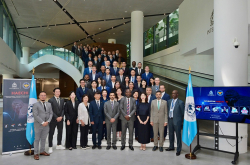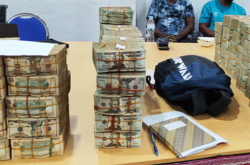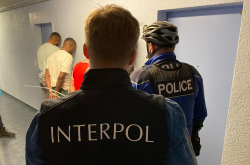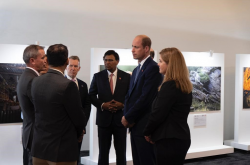Money laundering is concealing or disguising the origins of illegally obtained proceeds so that they appear to have originated from legitimate sources. It is frequently a component of other serious crimes such as drug trafficking, robbery or extortion.
Money laundering is omnipresent and found in areas where it might least be expected, such as environmental crimes. The advent of cryptocurrency, such as bitcoins, has exacerbated this phenomenon.
Criminal gangs move illegally obtained funds around the globe using banks, shell companies, intermediaries and money transmitters, attempting to integrate the illegal funds in legal businesses and economies. Nowadays, money mules play a key role in this context. These are people who act as intermediaries for criminal gangs, even when they are not aware of the fact they are laundering illegal funds.
Going back to the roots
The investigation of money laundering usually goes hand in hand with the investigation of the original crime generating the proceeds. Financial investigations aim to identify the origins, flows and whereabouts of illicit income and unmask the networks involved. Illegally acquired assets can then be frozen or confiscated and the perpetrators of both the original offences and the subsequent money laundering prosecuted.
Bringing civil society on board
Coordinating a tailored response to such sophisticated phenomena requires close cooperation with partner organizations. We work with groups such as the Egmont Group body of more than 160 Financial Intelligence Units, the inter-governmental Financial Action Task Force (FATF) and the FATF-linked Regional Anti-Money Laundering bodies.
Crossover crimes
Our initiative against money laundering will focus on specific areas such as environmental crime, human trafficking and migrant smuggling.
Forestry crime
Project LEAP is a joint initiative between INTERPOL and the UNODC which focuses on forestry crime and converging crimes, in particular money laundering, corruption and tax evasion.
The project provides a coordinated global response, working to build the necessary governance and enforcement framework.
As part of LEAP partnerships in Latin America and Asia-Pacific, INTERPOL encourages multi-agency cooperation, bringing together environmental agencies, national police, customs authorities, financial and anti-corruption units, and public bodies.
One of the main objectives of project LEAP is to introduce a collaborative approach, based on the creation and implementation of Environmental crime Task Forces (NESTs).
Human trafficking and migrant smuggling
Project FLYWAY is an INTERPOL initiative for countering human trafficking and migrant smuggling in West and North Africa.
The project strengthens connections between investigations into human trafficking and migrant smuggling and investigations into financial crime. This is achieved by conducting criminal analysis on data drawn from these areas.
The INTERPOL Financial Crime and Anti-Corruption Centre works with other relevant units at the General Secretariat to carry out national and regional needs assessments, and implement pre-operational training courses, intelligence collection and analysis, joint regional investigative support meetings, pre- and post-operational support meetings, and so on.
Project Flyway is funded by the Ministry of Foreign Affairs of Norway.









